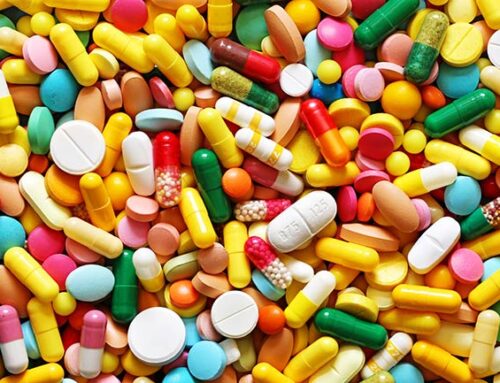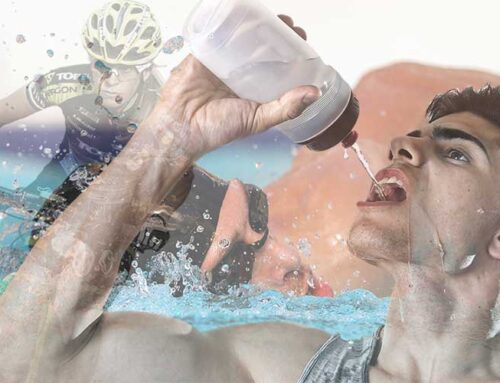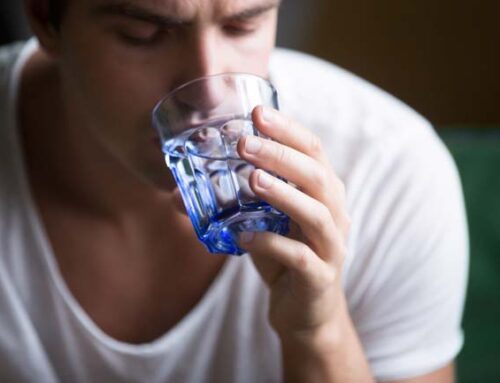What are electrolyte drops and are they effective? Read this article to learn what pure electrolytes are, and a summary of a clinical study with smokejumper firefighters, which showed that electrolyte drops added to water are dramatically more effective for hydration than water alone. The article below was re-published with permission of Paul S. Auerbach, MD, MS, FACEP, FAWM. Please refer to this link to the original article. Sub-headings have been added to improve readability.
What are electrolyte drops?
Pure electrolytes in liquid form are similar to what you might get in a typical sports drink, but with a few pros and cons. First, they can be added to any beverage, but especially water. This liquid form of electrolytes gives flexibility so someone can drink whatever they prefer, whether to avoid sugar, flavorings, or acids which can be hard on the digestive system, especially during intense exercise. Another difference is that pure electrolyte drops may contain different electrolytes. Most sports drinks, like Gatorade, only contain sodium chloride and potassium chloride, but lack magnesium, which is critical for just about every function in the body, including preventing muscle cramps or charley horses. Electrolyte drops are also concentrated and portable. If you prefer grabbing a ready-to-drink beverage from a convenience store, then by all means, enjoy. But just don’t think you are drinking health food. One serving of most sports drinks contains a staggering amount of sugar.
Related article: Salt Water Hydration? The Surprising Science of Electrolytes and Dehydration
Do electrolyte drops work for hydration?
Read about the double-blind study below by the University of Montana in which two groups of wildfire firefighters (smokejumpers) tested elete electrolyte drops compared to regular water. (Read related article: Electrolytes are essential for life, health, and peak performance).
Paul S. Auerbach, MD, MS, FACEP, FAWM
Wilderness medicine and electrolyte drops
A 2009 issue of the journal Wilderness & Environmental Medicine, published by the Wilderness Medical Society, has a number of very interesting articles of significance to the layperson outdoor medicine enthusiast. Effects of an Electrolyte Additive on Hydration and Drinking Behavior During Wildfire Suppression, by John S. Cuddy and his colleagues (WEM volume 19, pages 172-180, 2008), describes a study designed to compare the effects of a water plus electrolyte solution versus plain water on changes in drinking behaviors, hydration status, and body temperatures during wildfire suppression activities. In this particular study, eight participants consumed plain water, and eight participants consumed water plus an electrolyte additive (elete by Mineral Resources, Ogden, Utah) that contained magnesium, sodium, chloride, potassium and sulfate. The participants were provided specially outfitted backpack hydration systems with three-liter capacity from CamelBak (Petaluma, California).
Read the full study here showing that Electrolyte Drops + Water = More Effective Hydration
Results: Remarkably lower fluid consumption
During the measurement period, the participants were monitored for volume of fluid consumed, body weight, core, and skin temperatures. Work output was measured, as was the environmental temperature. The results indicated that all things being equal, the major difference noted between the water group and the water plus electrolyte drops group was that a remarkably lower fluid consumption (approximately 3.3 liters per day) was noted in the water plus electrolytes group.
This suggests that supplementing water with electrolytes might reduce the amount of fluid necessary to transport and consume during extended activity. This would minimize excessive weight, which in and of itself might contribute to a lessening of fatigue.
Possible future studies for electrolyte drops
In this study, the amount of fluid consumed was at the discretion of the participant, so was presumably driven by thirst. It would be very interesting to replicate this study in other situations where rehydration is important, such as high altitude travel, competitive sports, and recreational sports. It would be important to control for as many variables as possible, such as beverage temperature, taste, food intake, and so forth. It would also be useful to determine if this information has any applicability in a survival situation.
Related article: Can you Drink Too Much Water?
By Paul S. Auerbach, MD, MS, FACEP, FAWM

Dr. Paul S. Auerbach is Professor of Surgery in the Division of Emergency Medicine at Stanford University School of Medicine. Dr. Auerbach is a founder and past president of the Wilderness Medical Society, editor of the definitive medical reference text Wilderness Medicine, 5th Edition, and author of Medicine for the Outdoors, which is the leading book on outdoor health for laypersons. He serves on the National Medical Committee for the National Ski Patrol System and is a recipient of the DAN America Award from the Divers Alert Network, Outstanding Contribution in Education Award from the American College of Emergency Physicians, a NOGI Award in 2006 from the Academy of Underwater Arts and Sciences, Diver of the Year for Science in 2008 from Beneath the Sea, and DAN/Rolex Diver of the Year in 2009. Dr. Auerbach is the world’s leading authority on wilderness medicine. He practices emergency medicine, teaches, performs research, and advises numerous agencies and organizations, including serving as an advisory board member to the AARP Fat 2 Fit Community Challenge. Dr. Auerbach has been hailed as a Hero of Emergency Medicine by the American College of Emergency Physicians.
Publications:
Field Guide to Wilderness Medicine
Medicine for the Outdoors
Wilderness Medicine
This article appeared on Healthline.com at: https://www.healthline.com/blogs/outdoor_health/2009/01/electrolyte-additives-for-hydration.html





